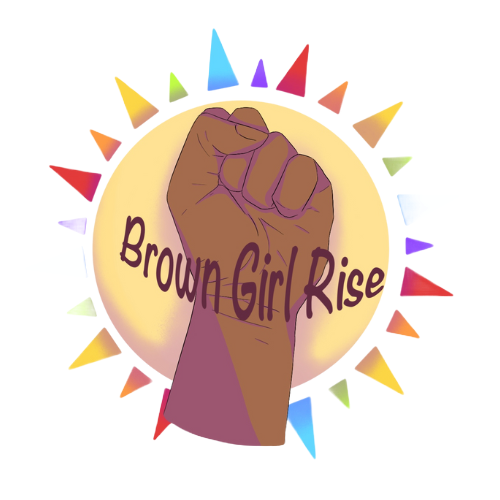Our Mission
Our mission is to cultivate solidarity between girls & non-binary youth of the Global Majority*. We are a sisterhood of Black, Indigenous, and girls and nonbinary youth of color, reclaiming our connection to body, community, land, health, and creativity to cultivate a just future where we rise together.
*The term “global majority” is rooted in the knowledge that most of the world’s population is made up of various ethnicities and therefore we cannot be othered. The term people of color perpetuates the idea that whiteness is the standard, by which every person is categorized (i.e., either you’re white or you’re something other than white). By using the term “global majority”, we acknowledge what we are rather than what we are not.
Disability Justice and Inclusion Policy
Goals and Purpose
At Brown Girl Rise, we believe that true sisterhood and solidarity must include everyone. We are committed to ensuring that all individuals—youth, staff, volunteers, and community members—have full access to and inclusion in our mission and programming. This policy reflects our dedication to practicing disability justice principles and going beyond the minimum standards required by law to create a truly inclusive and equitable environment.
Our policy adheres to the Americans with Disabilities Act (ADA) and relevant state laws (e.g., ORS 659A), ensuring that qualified individuals are not discriminated against based on disability or pregnancy-related limitations. However, we recognize that the ADA is only a starting point. BGR commits to accommodating individuals whose needs may not fall under the ADA but still require support to access our programming and opportunities fully.
Definitions
BGR embraces the 10 Principles of Disability Justice as defined by Sins Invalid and understands that:
All bodies are unique and essential.
All bodies have strengths and needs that must be met.
Our power comes from the complexities of our bodies, not despite them.
Ability intersects with race, gender, sexuality, class, and more, and cannot be separated from these experiences.
Disability justice calls us to continually improve accessibility in both our internal practices and public programming, ensuring that inclusion is embedded in every aspect of our work.







